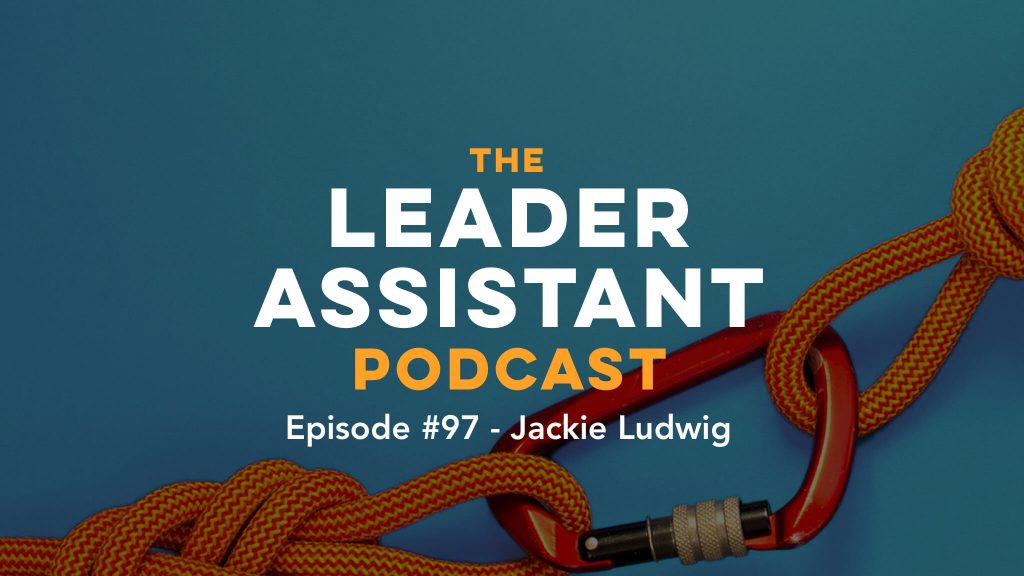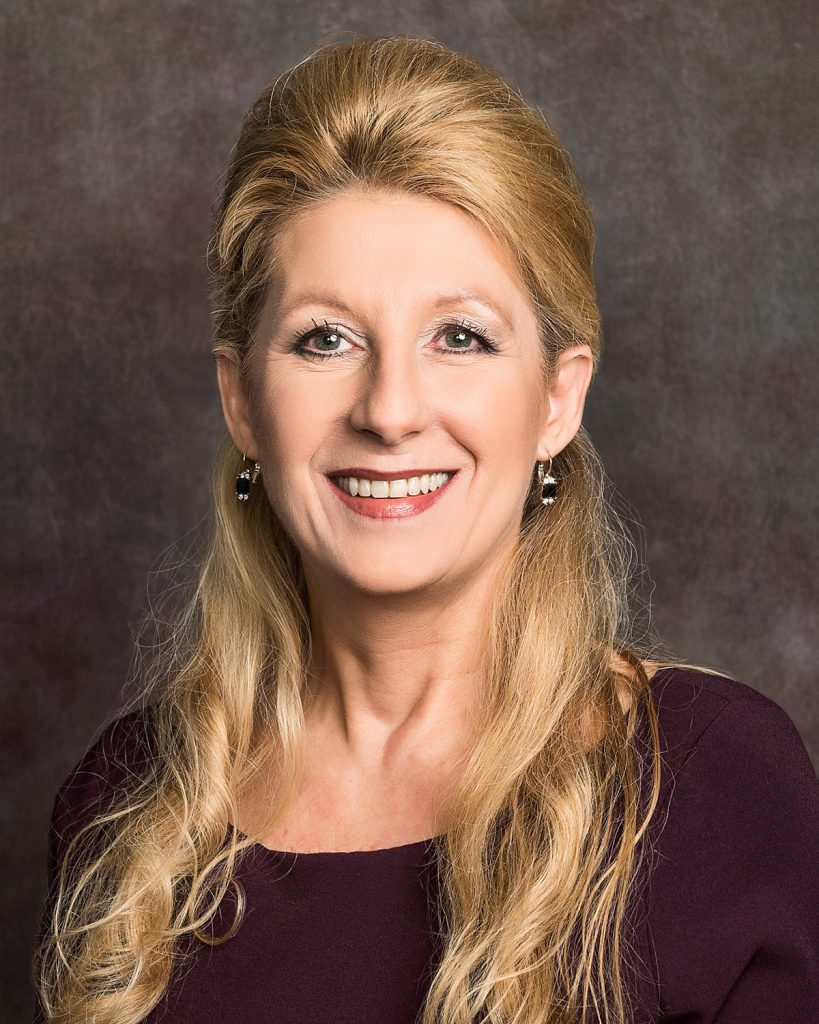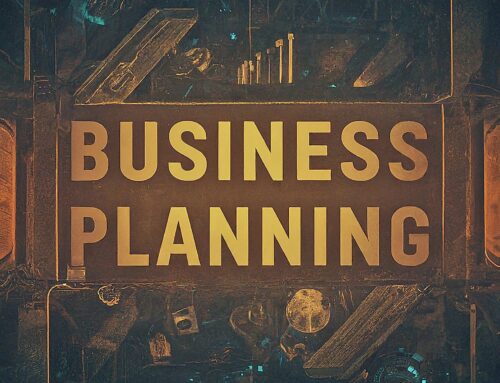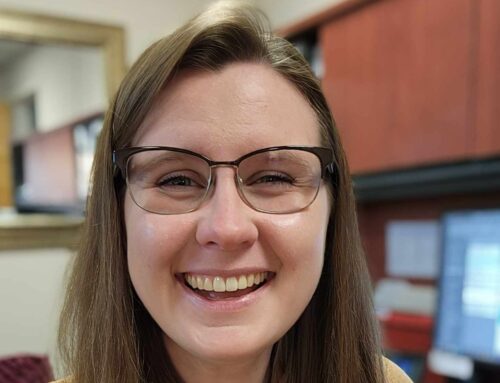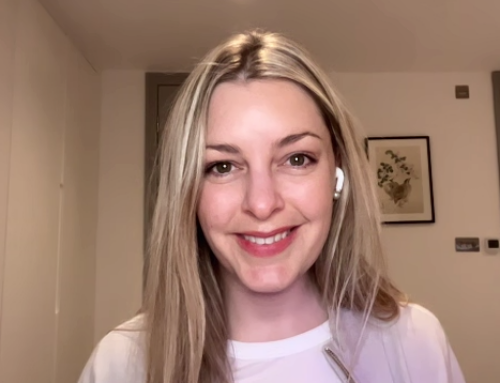Jackie Ludwig’s career includes working as an EA for senior level and c-suite executives at Korn Ferry, Rolex and YPO, to name just a few.
In this episode, Jackie shares a bit of her story and tips on professional development, managing an executive’s inbox, networking, and more!
LEADERSHIP QUOTE
Another of Madiba’s (Nelson Mandela) great lessons: you can have a vast difference of opinion with someone but that never justifies disrespect.
– Zelda la Grange, Good Morning, Mr. Mandela
LEADER ASSISTANT LIVE EVENTS
Check out our constantly updated schedule of events for admins and assistants at LeaderAssistantLive.com!
THE LEADER ASSISTANT BOOK
Download the first 3 chapters of The Leader Assistant: Four Pillars of Game-Changing Assistant for FREE here or buy on Amazon here.
JOIN THE FREE COMMUNITY
Join the Leader Assistant Slack Community here, or the Facebook Group here for bonus content and to network with other assistants who are committed to becoming leaders!
CONNECT WITH JACKIE
SUBSCRIBE
Subscribe to The Leader Assistant Podcast so you don’t miss new episodes!
You can find the show on Apple Podcasts, Spotify, Google Podcasts, Pandora, and Stitcher.
Join my email list here if you want to get an email when a new episode goes live.
LEAVE A REVIEW
If you’re enjoying the podcast, please take 2 minutes to rate and review the show on Apple Podcasts here. Each review helps me stay motivated to keep the show going!
—
EPISODE TRANSCRIPT
Jackie Ludwig 0:00
Hi, my name is Jackie Ludwig. And the leadership quote for today is, you can have a vast difference of opinion with someone, but that never justifies disrespect.
Podcast Intro 0:14
The Leader Assistant Podcast exists to encourage and challenge assistant to become competent game changing leader assistant.
Jeremy Burrows 0:24
Hi, friends. Just a quick note about today’s episode, we recorded this interview quite a while ago, just catching up trying to get all the interviews recorded published. So my conversation with Jackie took place probably over a year ago. And a lot has happened since then. So she’s actually not at YPO anymore, but she is doing some cool new exciting things. So definitely check out her Linked In profile that I will post in the shownotes at leaderassistant.com/97. So check out the updates to Jackie’s life and world at leaderassistant.com/97 where you can check out her LinkedIn profile. And yeah, reach out to her she’s great and would be happy to connect with you. Alright, let’s listen to the interview. Again, even though she’s not at YPO anymore. She actually works with the executive that she worked with at YPO still, and she shares a lot of great tips and wisdom and some of her story. So I hope you enjoy it. Hey, everyone. Thanks for tuning into The Leader Assistant Podcast. It’s your host, Jeremy Burrows. And today I’m speaking with Jackie Ludwig. Jackie is the executive assistant to the president and chief operating officer of Y P. Oh, Hi, Jackie. How’s it going?
Jackie Ludwig 1:51
Hi, Jeremy. It’s great. How are you?
Jeremy Burrows 1:54
I’m doing well. And what part of the world are you in today?
Jackie Ludwig 1:57
I am in Dallas, Texas. Tell in Dallas, Texas today.
Jeremy Burrows 2:03
Awesome. So what is YPO?
Jackie Ludwig 2:06
YPO is an organization of CEOs. It’s Young Presidents Organization. So it’s an organization of CEOs that come together as a community to learn and to meet and to share ideas and best practices.
Jeremy Burrows 2:24
Awesome. And then how did you end up working at YPO.
Jackie Ludwig 2:28
I had just left a position with a luxury brand. I worked for the director, he ran the the service center here in Dallas. And I worked for him and I decided it was time to move on. So I reached out to one of my recruiters that I dearly love, she always finds me the best things. And she had this position. It was a position here at YPO. And when she’s approached me with it, the location was about eight minutes from my house. So that gave me pause. I was like, oh, wait a minute. This is a little too good to be true. And then I met my executive and I met others from the team here in the office. And everyone was just genuinely nice. They were just it’s a wonderful group of people. Everyone says that, but they were just so nice. And again, I think gave me pause. I was like, Wait a minute. So I had to call my executive back on the phone. Because I just wasn’t sure I and I told him I said I’m the one that comes in Good morning every day and that bothers people just let you know what you’re getting into. He’s like, Nope, that’s what we want. So they offered me the position I took that took the role and I’ve loved every minute of it since
Jeremy Burrows 3:48
awesome. So when did you become an assistant? So kind of stepping back a little bit? And why why did you become an AE?
Jackie Ludwig 4:00
Um, ages ago I started my career just kind of working in banking as a teller and I wanted to get out of the I liked the teller roles but I wanted to get more into a see the air quotes real job. So a position came open in the what they call the Private Client Group. So it was working with a fluent customers. And it was more a nine to five type role. My kids were little at the time. And I was going to be able to work downtown, which was you know, super cool. So, ticking all the boxes, I took the role. I really liked what I did, and it just kind of it just kind of grew from there.
Jeremy Burrows 4:40
So what was it about the role that you liked? Like what do you love about being an assistant?
Jackie Ludwig 4:45
Um, just the idea of helping people. I was the first touch point so they would call in and they would get me before they would get my executive and it just, you know, I would get to know them. I would know what they needed. I would be able to helped them. And it just got to a point where they would call me because they knew if they called the the executive that she was just going to pass it back to me to do so we just all skipped a step. And they gave it to me, they would call me directly. So, but it was just getting to know people that personal connection. And they would call with a problem or something that they needed. And it was the idea, oh, I can fix that. And just connecting with them and fixing things.
Jeremy Burrows 5:28
So do you have any crazy stories about fixing things or saving the day?
Jackie Ludwig 5:32
I do have a crazy story. And it’s just a at one of my roles. I worked for a company and the team was primarily gentleman, there were probably it was a team of about 125. And maybe 10 of them were ladies in the restaurant guys. And we were doing an off site. So you know, you go somewhere three days worth of meetings, everything like that. And we went to Las Vegas. So
Jeremy Burrows 6:05
the story is heading.
Jackie Ludwig 6:07
So my boss who didn’t get to the office before me at call me the first morning and he’s like, You need to get down here. And I’m like, what? And he’s like, you just need to get down here. So I’m like, Oh, great. I’m gonna get fired in Las Vegas. This is gonna be great. So I get down there. And there’s a whole nother not a whole nother conference going on at the same time as ours, which is expected in a hotel. We have the back room at the end of a hall right across from the restrooms. It was like the perfect little corner for us. Well, you had to walk through this major conference to get to ours. And it was quite fascinating. And let’s just say that their keynote speaker was Larry Flynt. And if anyone doesn’t know who Larry Flynt is, don’t look him up on your work. Laptop, check him out on your home device. But yeah. So from that I learned, we always always need to ask when we go in to do our site visits, what’s going on around my, my conference? Who’s in that room? Who’s in that room? And what’s going on? Oh, my gosh, it was it was hysterical. Now looking back, I was mortified. It was just like, oh, my gosh, the things he got to see that week. So that was quite the learning. He was not mad at me. He was the sweetest guy. He was not mad at me. But it was just all the all the guys thought it was the best conference ever. And it was a huge learning. So yeah, always ask what’s going on around in the other room, other conference rooms when you’re looking at a site
Jeremy Burrows 7:53
visit? Yikes. Thanks. Yeah, that was fun. Yeah, you told me start the story off with we went to Vegas. Interesting. So what about what about a mistake that you made one of your biggest mistakes and what you learned from it?
Jackie Ludwig 8:12
It’s you know, you always when you when someone asks you, you know, what’s a mistake, then suddenly, they all leave your brain? And you can’t think of one right, right? Well, we’ve all made a bazillion of them. But the one that first popped into my head was when I first right after I left the bank, I went into just a regular corporate, the corporate world. And it was the same company and the gentleman that I worked for it was a UK based company. And it was back in the olden days when we faxed and turned around butter, and he would have me fax things to Milton Keynes. And I asked him one day, early on, I said who is this guy, Milton Keynes that we keep faxing things too. He looked at me like, Oh Lord, who did I hire? Milton Keynes in the UK is not a he, it’s a place, not a person. So I was like, Oops, got to come back to work the next day. But yeah, that was probably like the most embarrassing of the mistakes that I’ve made was not knowing Milton Keynes.
Jeremy Burrows 9:20
So what what’s your number one tip for managing an executives inbox?
Jackie Ludwig 9:31
I think just being aware of the priorities for them. They’re gonna get things I know, especially right now with my executive there. He’s getting pinged from all different directions. And of course, everyone needs him to be in a meeting with them now and it has to happen in this week. And so being able to have a really good line of communication with your executive and knowing what their priorities are. So you know, oh, I can push back on this one or I can, you know, I can make this way this meeting, I can push it out and make it 234 weeks from now, just that that line of communication, keeping that open so you know where their head is inside their inbox.
Jeremy Burrows 10:16
Great. So what about to the executives listening, what’s a tip that you would share to the executive on how to help them empower and utilize their assistant better?
Jackie Ludwig 10:31
I would say, let the assistant do what you hired them to do, assistants will bend over backwards, to make their boss look good. And to do everything they need, they can in their power to get their boss what they need, get them where they need to be on time and prepared. When. And I’ve had this happen before when the executive steps in and tries to micromanage or tries to help you with your work. It just doesn’t work. Keep the lines of communication open, say here you go, I need you to do this. And then let the assistant go let them go do it because you hired them to do a roll. Let them do it. Where you know, we all have done this for a while. And we can we can move heaven and earth for you if you just let us go.
Jeremy Burrows 11:24
So I know a lot of people talk about their executives being micro managers, are there any other kind of tips that you could share for assistants who have have to deal with micromanaging bosses?
Jackie Ludwig 11:37
Um, yeah, those are the tough ones. I think just keeping keeping them informed, goes a long way. Because as long as they can see what’s going on and know what’s going on, they feel more comfortable. And I think over time they become less of a micromanager. The the communication back and forth is just really, really the key element there. As long as they let you know, their priority, or what’s important to them today or this week. And then as things occur, you let them know, some some executives like you to tell them, you know, they asked you to do something, they like you to ping them back Dun, dun, others of them, I don’t need to know when every single thing is done. But just kind of give me the high level. It just depends. But I think the more they micromanage you, the more they just want to know that things are getting done. So just if they send you a note, order this book for me, then just turn the email right back around done. It’ll be delivered here. And then you just move on to the next one. And it’s just that back and forth communication that’s so important. For things to move to move efficiently and smoothly.
Jeremy Burrows 12:54
Yeah, love that. I’ve definitely worked with executives before where they just simply wanted to know, what if things were done, or? And then I’ve worked with other executives that are like, I don’t really care just as long as it’s done.
Jackie Ludwig 13:08
Yeah. You don’t want to tell me every single thing? Yeah. Yeah.
Jeremy Burrows 13:12
Kind of knowing what style your executive is definitely helps.
Jackie Ludwig 13:16
Right. And I think until you first learn, and it gets a little, it’s a little stressful, but just know that once you figure out that communication style between the two of you, things will move a lot more smoothly.
Jeremy Burrows 13:28
Yeah. So if you could snap your fingers and instantly give all assistance, more of something, what would it be?
Jackie Ludwig 13:37
calm confidence. I think so often. We as executive assistants don’t feel confident in what we’re doing. We don’t feel confident that we know the workings of the business or we don’t feel confident that we’re able to step up and do something, when in fact we do know what’s going on in the business. And we do understand it and we you know, we manage people. On any given day, you’re managing your executive, you’re managing his team, you’re managing the people in the office, you’re managing, you know, if you’re, you’re if you have staff, you’re managing your own staff, or if it’s just the coffee guy bringing in the coffee, you’re managing him to make sure he gets hit in the right spot. But just having the confidence to recognize that yes, you are doing that and that you’re good at it. Just that I think that would go a long way for a lot of folks.
Jeremy Burrows 14:39
Yeah, I totally agree. Confidence is a big, big characteristic or trait or whatever that a lot of assistants lack would benefit greatly from so yeah, good answer. So we met at a conference in Atlanta. Anna, and you also do kind of a network for YPO. EAS in your area. Do you have any tips on networking with other assistants?
Jackie Ludwig 15:11
Yeah, I would. First I would say any opportunity that you have to network other assistants do it, there’s just there’s so much to learn and you just never know. You, you know, just you might need to ask them a question. We have a group here in the Dallas Fort Worth area. It’s EAS of YPO members. And we’ll get together once a month, and we’ll share learnings we’ll have we do community service, we just build a rapport amongst ourselves. And we have, you know, we have our own website, we’ll go out if one of us need something. It doesn’t matter how ridiculous or crazy The question is, you can go out and just ask your team, the group of them and say, Hey, has anybody ever done this? One of them just recently had to send you know the big Texas steer with the huge horns that big Longhorns. Somebody had to send a set of the Longhorns to Europe, and wasn’t quite sure what the best way to do that was send a note out to the group got an answer back, shift them over there, no problem done. And some of the, some of the ladies their bosses will say Go Go talk to your group and ask him this question, find out how to do this. So it’s really helpful being connected like that. And I know you’re yours, your Slack community that you have the leader assistant community, that’s really helpful, too, because it kind of takes what we have here in Dallas, Fort Worth, and it blows it up on a national level. So you can reach out anywhere, you know, I my executive squad in Nashville, what’s a good restaurant, and somebody will come back with something for you. So thank you for creating that. And including us in it.
Jeremy Burrows 17:03
Yeah, it’s, it’s fun to kind of have assistants all over just helping each other and often just can sit back and watch and see the networking and the helpful assistants interact without having to do anything, it’s kind of nice to set up set up the platform for that to happen. Because, yeah, I think it’s very powerful to be able to reach out to other experts in other cities.
Jackie Ludwig 17:33
Absolutely, totally agree.
Jeremy Burrows 17:36
And if you’re listening in, you have not joined the slack group or checked it out yet, you can check it out at Slack dot leader assistant.com. Alright, so what is a tip or two that you might have for assistants who want to grow their skills, or develop new skills, maybe professional development or further education?
Jackie Ludwig 17:59
I would a couple of things, there is certainly conferences, the conference you and I met at was great. There’s several really, really good ones out there. I would also recommend certifications, there’s a couple of different certifications I have. I have one certification now and then I’m going to another conference in November to get a second certification. So the that type of skill, it sets you apart from others, it gives you you know, it gives you that little bit of leg up, but it also gives you a knowledge base that’s so helpful. It exposes you to other avenues. So through those conferences or those learnings, then you meet people, that’s how you and I connected. And just from one you learn about another and then you learn about another and it’s like a spider web, once you start you just you know, it just kind of branches out in all different directions. There really is a lot of learning and content out there. It’s just trying to find it and it seems difficult at first, but once you get that first one going, it just kind of blows up for you.
Jeremy Burrows 19:18
Awesome. So what what’s been the benefit? Maybe one or two benefits of the certification in your opinion?
Jackie Ludwig 19:27
Um I think like I said before the knowledge base so it’s for the one certification. It was a it wasn’t necessarily deep, but it was broad. And it brought exposure to some really good training on Microsoft on the different Microsoft products, which then led to oh, there’s different certification available for Microsoft products. So I think it gives you that subject matter expert A status that says hey, I know about this stuff I can help you. And when your executive sees that, or if there’s other yeas in the area, they’ll see, you know, the little letters after your name. What is that about? Oh, let me tell you, and then you can share that, you know, it’s a it’s a knowledge space sharing. It’s an information sharing. Another way to connect and network.
Jeremy Burrows 20:24
Awesome. So what about books? Is there one book that you would recommend to assistants?
Jackie Ludwig 20:33
For me the one book that kind of really got the ball rolling basically a snowball down a hill for me, it was be the ultimate assistant. It’s Bonnie lo Cravens book from because her book and then you know, she would mention another different people and then you start, your head starts going and you start Googling, and it starts that spider web starts spinning. And it you know, it should it introduces you to so many people in the industry, Lucy brasier, Diana Brandel, there’s just there are so many people out there, I could name drop, but they’re just they’re fascinating to listen to, if you ever have the opportunity to go either to one of their conferences or hear them speak. Vicki Sokol Evans is another one that I learned about through that. But it was just that one book from Barney be the ultimate assistant that just kind of started getting my mind going and giving me just that little nudge or that little bit of confidence that, Hey, I can’t do this, Hey, there is something to this.
Jeremy Burrows 21:38
It’s great. So one question I like to ask to all my guests is, you know, seeing that the show’s called the leader, assistant, what makes an assistant a leader.
Jackie Ludwig 21:53
I think the whole the whole idea of servant leadership. So just rolling up your sleeves and diving right in and not being afraid, you know, if that means working with someone in the C suite, or any of the folks in the C suite, being as comfortable with them, and just interacting with them, as you do, again, with the coffee service guy, or the building staff, and everyone in between. And you just you’re you get to know them. And you interact with them, that I think sets you apart as a leader. People want to, you know, they, they want to work with you. Because oh, this person knows my name, and she knows what I do. It helps you as the assistant because then you build a network. And if your executive or someone comes to you and says, Oh, hey, Jackie, what do I do with this? How can I make this work? Oh, wait, I know somebody and you know who to go to, to make it happened or to get it done? Or if you don’t, you can go to another person that you think might be the one. But they’ll say no, you gotta go to that one. You meet someone new, and you just, it’s just that interaction, and that you start building your network of, of people that you know, that can help you help other people. Does that make sense? Yeah,
Jeremy Burrows 23:24
definitely. So what would you say to somebody listening, that’s a brand new assistant, or maybe even, maybe they’re not even an assistant yet, but they’re considering becoming one? What’s something you would say to them? Or maybe another way to ask this would be, what’s something you would tell yourself on your first day as an assistant, if you could go back and tell yourself,
Jackie Ludwig 23:47
I would say, take notes. And I would also say, don’t be afraid to ask questions. We’re all new at something at one point or another in our lives everyday, we’re new at something. So you won’t know everything on the first day. Don’t be afraid to ask questions. And don’t be afraid to meet people and talk to them. Because if you don’t necessarily know now, you know, someone in the office and you can go to them and say, Hey, I’m not quite sure where this is, who would I talk to? Oh, just go over there and talk to that one. And then you just kind of that’s how you start building that rapport and you start connecting with people. So just, you know, just ask the questions and take your notes.
Jeremy Burrows 24:35
Love it nice and simple to 2.0 TED talk, but very powerful, because that’s exactly what I would say to myself.
Jackie Ludwig 24:45
Just get a free little notebook and write it all.
Jeremy Burrows 24:49
Awesome. Well, Jackie, thank you so much for taking time out of your day. Is there something that we can do to support what you’re up to or somewhere where we can find you and connect with you online?
Jackie Ludwig 25:00
I’m on LinkedIn. And I’m also on Instagram at exec Jackie. I’d love to connect with folks. So if you’re just reach out to me that way, or if anyone you know if I can help anyone if you need to know something about somewhere here in Dallas or Fort Worth, or if there are other YPO yeas, please don’t ever anyone hesitate to reach out. I’m happy to help.
Jeremy Burrows 25:26
Awesome. Well, I’ll share those links in the show notes so people can find them easily. And then if anybody needs help with Vegas trips, they can call you right. Yeah. Well, thanks again, Jackie. And, yeah, it was fun meeting you in Atlanta at the conference. And yeah, thanks for being on the show and sharing your wisdom and your story and
Jackie Ludwig 25:51
we’ll talk soon. Okay, great. Thanks, Jeremy. enjoyed my time with you.
Jeremy Burrows 25:55
Thanks again for listening. Check out the show notes at leaderassistant.com/97. And also we have several events coming up this year. So check out leaderassistantlive.com For our schedule of events that will be getting updated on a regular basis.
Podcast Intro 26:22
Please review on Apple podcasts. Goburrows.com

